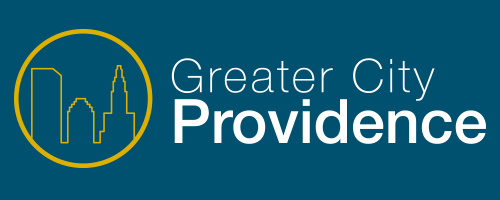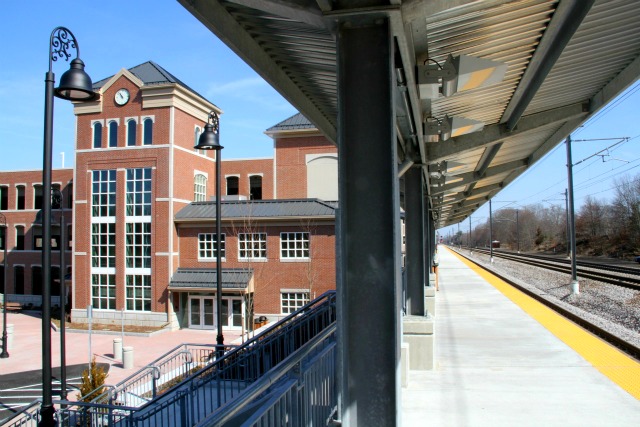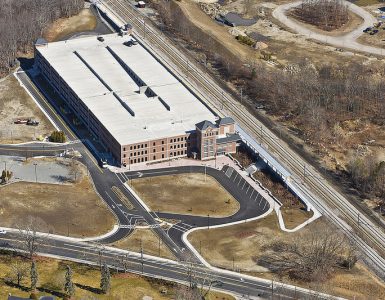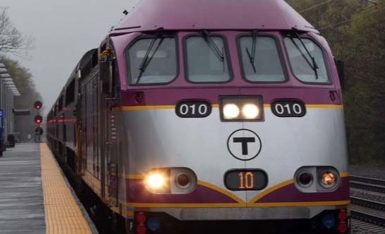Until more people need to get to Providence, [Wickford Junction garage operator Robert] Cioe said, those who do go will be able to drive in and find parking at rates that make it difficult for “park-and-ride” from the suburbs to compete.
Johnson & Wales University is preparing to open a 700-space parking garage downtown, the state is expanding a surface lot near the capitol while adding another, Brown University’s plans for redeveloping the South Street Power Station include a city-financed, 600-space parking garage and the Interstate 195 Commission wants the state to build a new parking garage next to the Garrahy Judicial Complex.
We don’t have enough parking but we have too much parking?
William Lawrence, a transportation consultant in South Kingstown who used to manage real estate for the MBTA, said there are currently a number of barriers standing in the way of commuter-rail ridership to Providence, in addition to the economy.
They include the inconvenience of getting from the Providence train station to many offices and the comparatively cheap cost of parking in or taking a bus into the city.
If we expect people to leave their cars at home, or at a park n’ ride, we need to make moving about the core better. We can’t put people on trains, let them off, and say, ‘good luck!’






I’ve been working on a thesis project that involves reading though downtown master plans from the 60s onwards, and what continues to astonish me is how little our transportation strategies have changed, and how, in spite of all that we should have learned by now, peripheral parking garages and lots are still put forth as the most realistic solution to the problem of access. God help us if we are still talking about ‘the parking problem’ in ten years, It is a transit problem and we are at least twenty years overdue for a system that works.
Still not sure why the empty parcel adjacent to Providence Station and across from The Cove (formerly Capital Cove) is not being considered as a use for relocating the bus depots from Kennedy Plaza. This would at least help with some getting around and consolidation of services and funding.
This place baffles me.
Well – I work right next to the Providence train station. So that wouldn’t be an issue. I think part of it is they really don’t promote the free parking. And I watch in the morning from my office – there is RIPTA bus after RIPTA bus going downtown so the argument it’s hard to get to your job doesn’t hold water.
TOD. Plain and simple. Along Denver’s light rail corridors, dense condos have sprouted up like weeds in the past few years. There was some talk a while back about a Warwick Station neighborhood…a captive audience that would spur ridership. Of course, an easy-to-memorize schedule would help as well (say, every 30 minutes, on the :02 and :32, from 6 to 10).
There is little incentive to take the train when parking in Providence is plentiful, the traffic on the drive in isn’t bad, and driving in the city is easy. The only thing the train is going to do is make your commute take longer. The facility in Wickford is comically oversized.
The road to getting people to choose transit doesn’t start with phrases like “captive audience.” It starts with smart development around transit, and policies that encourage transit use while discouraging SOV use. The goal here should be to get our transit network to a point where people will say “hey, this is something that works really well for me, I want to get on board with this.” That’s absolutely doable.
Word choice matters, and marketing is important. If we’re coming right out of the gate with phrases like “captive audience” and asking questions like “how can we make people take mass transit” instead of “how can we make mass transit something people want to take,” then we’re frankly setting ourselves up for failure right out of the gate.
I’m not saying, by the way, that we should ignore the fact that there’s a sizable portion of the existing transit ridership base who are, in fact, a captive audience. What I am saying is that by focusing on expanding and improving transit, we simultaneously make life a whole lot better for that captive audience at the same time as we encourage and attract new ‘choice riders’ into the system. By focusing on how to best compel people to take transit, all we really do is expand the size of the captive audience.
Comically oversized, and unfinished to boot. Has there been any progress at all on the empty parcel near the station? Last I checked, it was still a cleared patch of dirt with “Wickford Junction is growing” signage and nothing else. What was supposed to be going in there?
This might help – especially if they do residential:
http://www.providencejournal.com/breaking-news/content/20131106-ri-officials-herald-resurrection-of-former-leviton-complex-in-heart-of-warwick.ece
http://pbn.com/Integlia-city-reveal-plans-for-Leviton-property-in-Warwick,92886
Must agree with truthspew and Laim and would also like to add that expecting a non-urban [minded] city like Warwick to suddenly become mass-transit oriented is asking a lot. Why would folks come here when they can get most of the same, if not more, there? A mall is a mall.
Besides, folks aren’t necessarily flocking to our ‘abundance’ of jobs in Providence either. Fact is, I just don’t think as many people are coming to the capital city from points south as perhaps we are led to believe. Lets look north, east and west of the urban core to what those commuter populations are and focus on investing in places like the East Side Train Tunnel and new RTs 6/10 connection.
Wickford Junction garage is right up there with 38 Studios. What were they thinking?
There are plenty of neighborhoods in Providence and the inner ring waiting to be made less automobile dependent by relatively cheap, unglamourous means. Instead, they blew a wad attempting to make a dent in the insoluble auto-dependency of exurbia.
I think the attached article from the blog Sightline Daily by Alan Durning does a great job explaining the politics of parking and may explain our built current environment in Providence. Below is an excerpt.